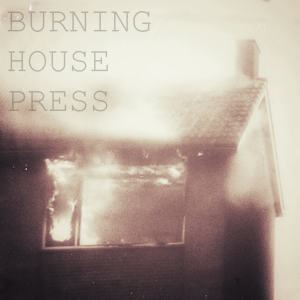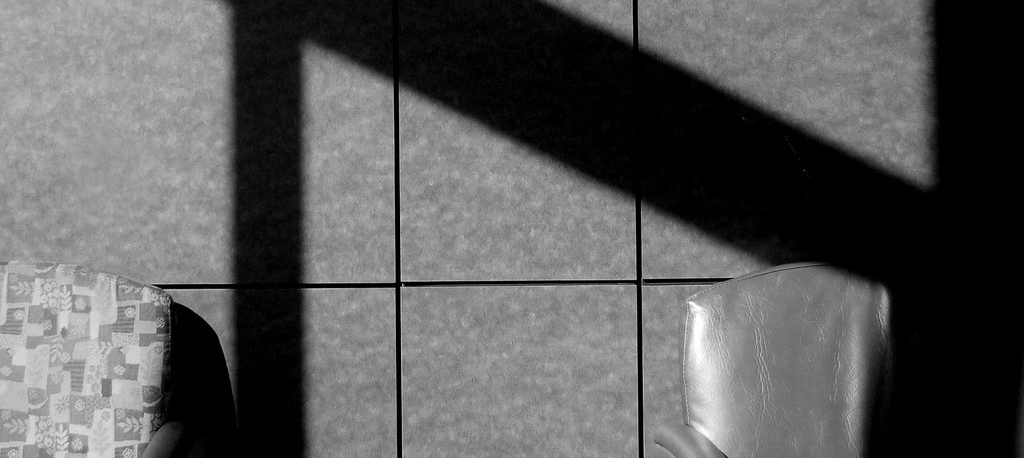When I first visited my father J in Berkeley in the 70s, Jerry Brown was governor, and he gave a state address, in which he said “I was thinking about the problems we are facing so I decided to listen to whale sounds, which I will play you now.” I laughed with J and his second wife, but was uneasy. A Northeastern teenager surrounded by palm trees and a whale-sound-playing governor.
On January 7, 2010, having flown in late the night before from New York to Sacramento, outrunning a blizzard via the last flight out of O’Hare, because J was in the ICU, I was dropped off at a new Catholic hospital in God-knows-where-suburban Sacramento that looked like a combination concrete church, mall and Disney ride called Hospital World.
I asked two older female volunteers where the ICU was and found it in a maze of identical corridors and sanitary gel dispensers even though I couldn’t remember the directions. A friendly nurse appeared and brought me to my father’s bed where I saw a body being kept alive by machines. Perhaps his spirit was trapped in there, but he was gone, his face contorted, mouth forced around an oxygen tube and body stuck with needles and monitors.
Not knowing what else to do, I sat next to him for hours. Stared at the 72-year-old body of the father I barely knew, his only living relative and only child.
Another nurse brought me coffee and comfort when he could. The nurses I began to sense were nuns; they radiated a compassionate, competent calm. They also argued with my father’s Godforsaken insurance company, explaining that no they could not move him from their ICU to Kaiser’s ICU just because it was costing extra money.
As I sat next to his body, which jerked upward every time he took another involuntary breath, I prayed. Though not a Catholic, a miracle had happened when I walked into his room. All my resentments, which I had tried for years to let go of, vanished. I forgave him the abandonment, the non-existent boundaries, his inability to support me as a child or see me as an adult until the very end, the whole thing. And I knew I had to let him go this one last time.
The doctors told me that he would not wake up this time, but I checked with J by asking him to move his foot if he wanted to go. Even though it had moved involuntarily before, now it twitched violently and repeatedly, which confirmed what was obvious from the moment I saw him.
I figured his partner C (like my mother he had re-married many times but had not married C) would not show up for a while as she had been staying with him late at the ICU. She asked me to come because she did not want to make the decision by herself and because she had lost her health care proxy, the one my father’s third ex-wife had paid a lawyer to sort out for her. I found the proxy the next day in their dark condo in the midst of relentlessly sunny suburban Sacramento after crawling over and under papers, clothes, pot pipes, dirty dishes, inscrutable stains, old food, cat litter and Buddhas. The detritus of disability, delusion, drugs and denial.
When C arrived in the late afternoon, we talked while she cried and freaked and agreed that we should let him go. The nurse explained to us that when they removed all the plugs and lines it could be minutes or hours before he died. I had a feeling it would be quick.
The nurse gave us lavender aromatherapy cream, then offered a choice of pillowcases that volunteers had made. She asked if we wanted a cast of his hand, which she then prepared, and I noticed as she did this she was crying.
After they took everything off and out of him, C disappeared. I was alone with my father, rubbing his head with the cream. I said ‘You are loved,’ and he took his last labored breath.
An administrator barged in asking me to sign a form so I could change my scheduled flight home to London. I asked her to leave but she insisted as her shift was ending, so I shared my father’s death with Virgin Airlines.
His pacemaker did not stop, so his heart monitor kept bleeping. They tried to stop it with a magnet so they could declare him dead but it was relentless. I knew this would cheer him up no end.
C reappeared and was frantic that she had missed his death. I did not ask where she had been. One learns. But I held her when she cried, and she held me when I cried.
As we sat with his dead body, we started laughing when I noticed that if you looked at J’s face at a certain angle, you could see his wry smile.
My mother called and talked to us. Many lovely text messages arrived as I had asked for friends to send prayers or whatever they believed in when the machines were being taken away and they did.
When C’s two sons and a girlfriend appeared, they stood as far away as possible from J’s body. I remembered dead bodies are supposed to be scary. I had been terrified walking into that hospital, but now felt at peace and deeply held.
Brown was recently re-elected governor of California, and I am sorry J did not live to see this after suffering through Schwarzenegger’s victory in 2003 able only to mutely point in horror after his first stroke. However, he did live to see his beloved Red Sox beat the Yankees in the World Series. Who says nothing changes?
Good-bye, J. I never did call you Daddy, but I know you’re my father. Thanks for the ride, even if you weren’t ready to buy me the ticket.

Julia Lee Barclay-Morton is an award-winning writer and director, whose prose and plays have been produced and published internationally—most recently her book Girls Meeting God was named a semi-finalist for YesYes Books publishing prize (winners selected in December) and her play Shit was chosen for the IATI 2018 play development program in NYC. Publications include in Ohio Edit (plays and prose), Prentice-Hall (No Words), TL;DR (Future Worlds: Tricorn Init!), Stockholm Review of Literature (The God Thing) and NYTE (Word to Your Mama). While NYC is home, she lived in London from 2003-11, where she was founding Artistic Director of Apocryphal Theatre and awarded a PhD at University of Northampton, UK (full fellowship). Her BA is from Wesleyan University. She teaches workshops, edits, and coaches authors privately. @whilhelminapitfa


September 9, 2018 at 7:23 pm
Poignant and powerful and replete with respect.
LikeLike
September 11, 2018 at 6:45 am
Thank you so much, Corinne.
LikeLike